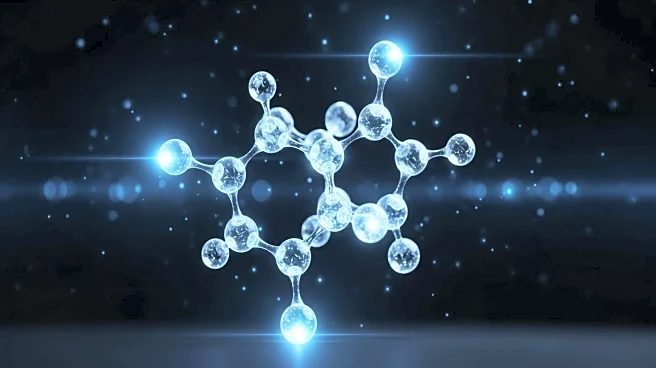What's Happening?
Verastem Oncology has announced encouraging preliminary data from its ongoing Phase 1/2a clinical trial evaluating VS-7375, an oral KRAS G12D (ON/OFF) inhibitor, in patients with advanced KRAS G12D mutant solid tumors. The trial, conducted in the U.S.,
has cleared the first two monotherapy dose levels (400 mg QD and 600 mg QD) without dose-limiting toxicities. Promising anti-tumor activity has been observed, particularly in patients with advanced pancreatic ductal adenocarcinoma. The company has also initiated enrollment for a combination cohort evaluating VS-7375 with cetuximab. The trial aims to assess the safety and efficacy of VS-7375 both as monotherapy and in combination with other treatments.
Why It's Important?
The KRAS G12D mutation is prevalent in various cancers, including pancreatic and non-small cell lung cancers, yet no FDA-approved therapies specifically target this mutation. The promising results from Verastem's trial could lead to new treatment options for patients with KRAS G12D mutant cancers, addressing a significant unmet need. The ability to manage gastrointestinal side effects while demonstrating anti-tumor activity suggests VS-7375 could become a valuable addition to cancer treatment regimens, potentially improving survival rates and quality of life for affected patients.
What's Next?
Verastem plans to continue monotherapy dose escalation and expand the combination cohort with cetuximab. The company expects to report an interim safety and efficacy update in the first half of 2026. Subject to positive results, Verastem may initiate a combination expansion cohort in colorectal cancer and advance subsequent efficacy and safety analysis in patient expansion cohorts with advanced pancreatic ductal adenocarcinoma and non-small cell lung cancer.
Beyond the Headlines
The development of VS-7375 highlights the growing interest in targeted therapies for specific genetic mutations in cancer. This approach could lead to more personalized and effective treatment strategies, reducing the reliance on conventional chemotherapy and its associated toxicities. The collaboration between Verastem and GenFleet Therapeutics also underscores the importance of international partnerships in advancing cancer research and drug development.
















